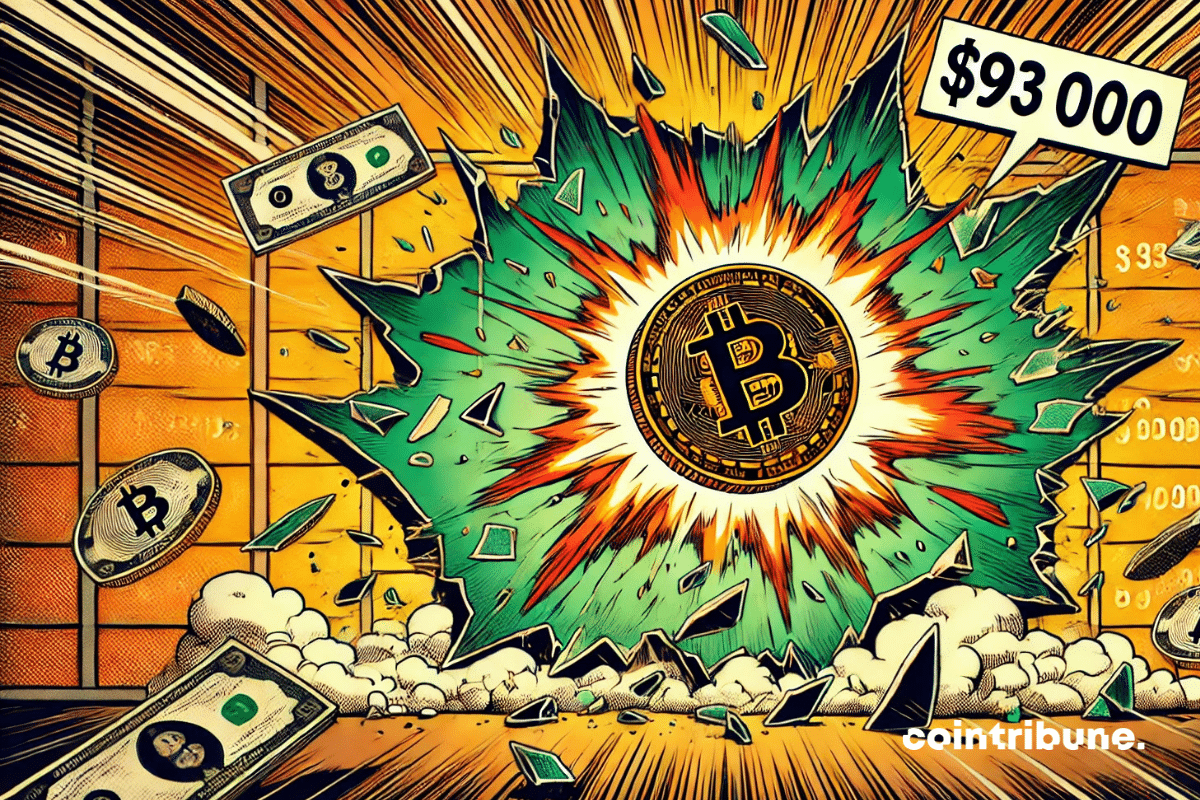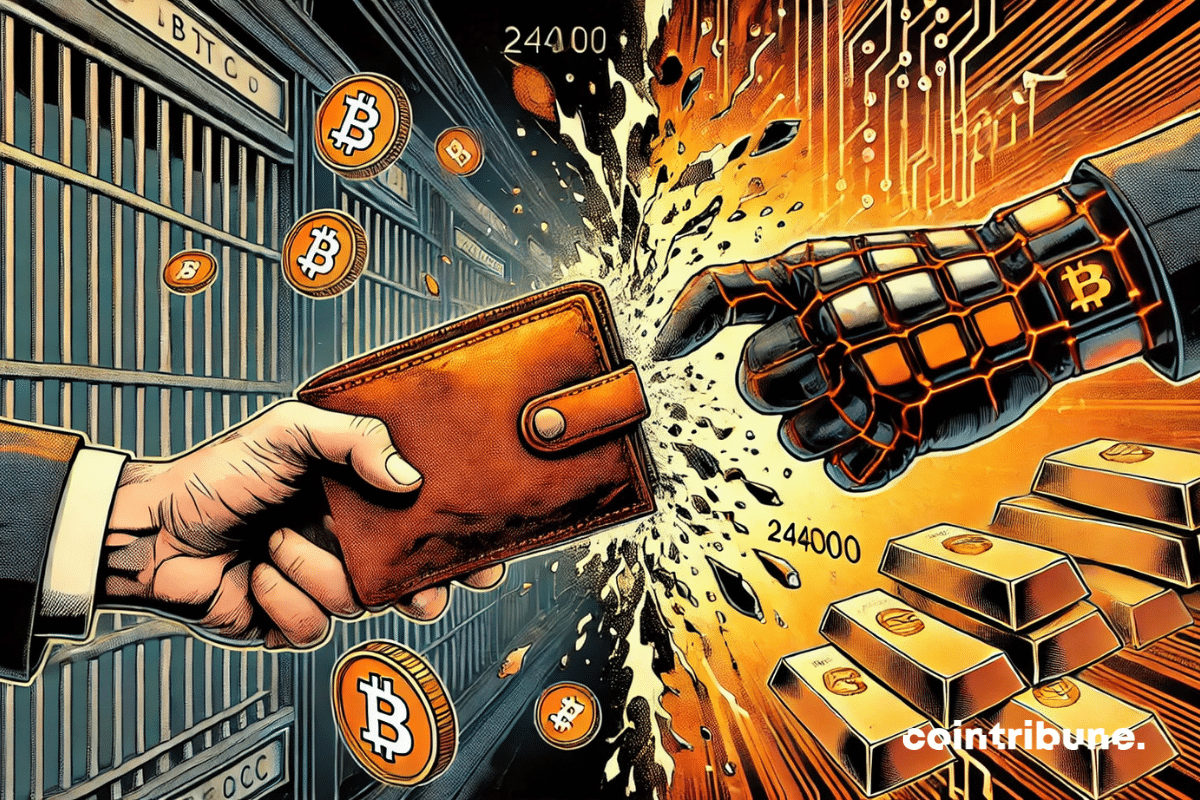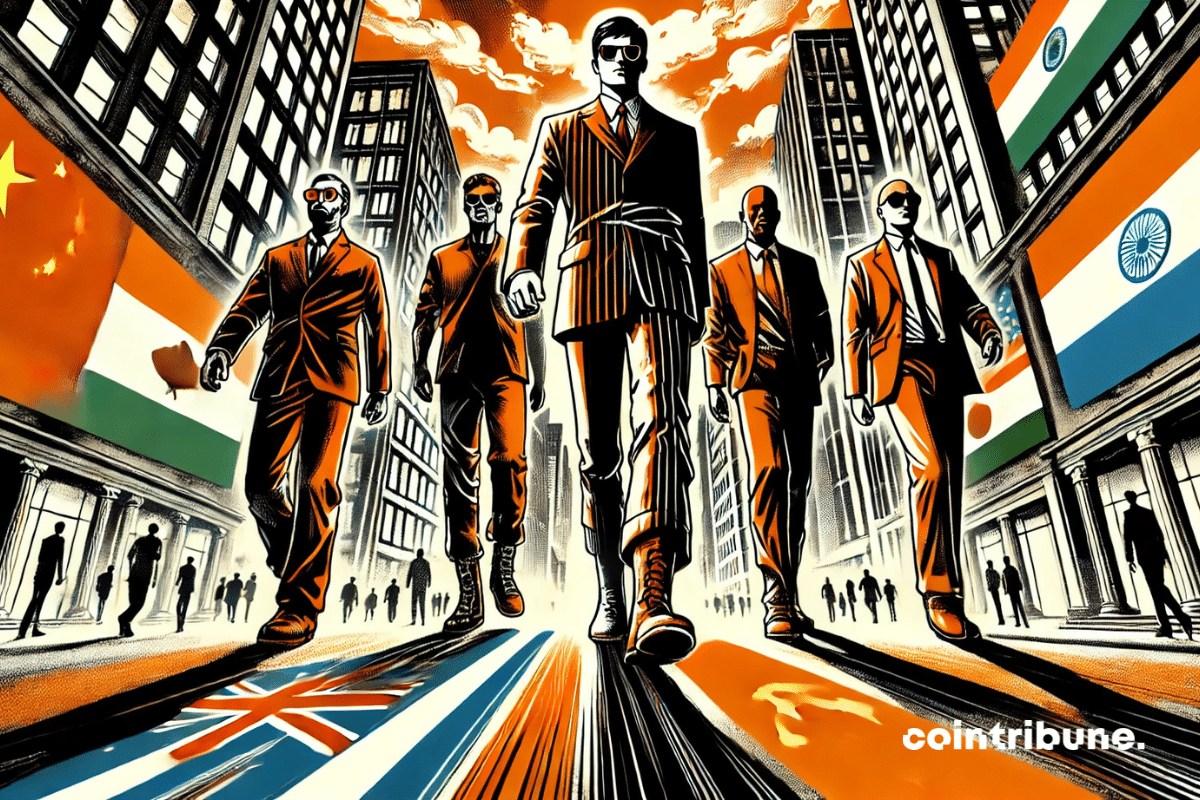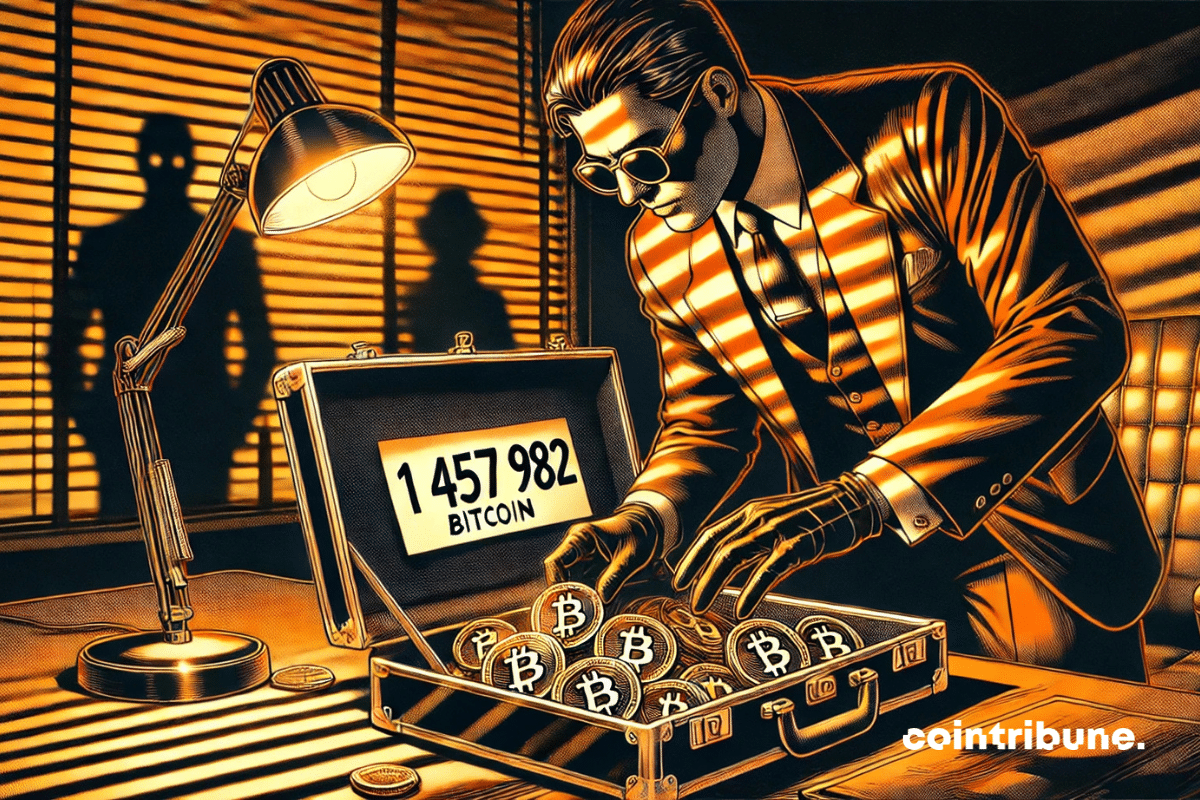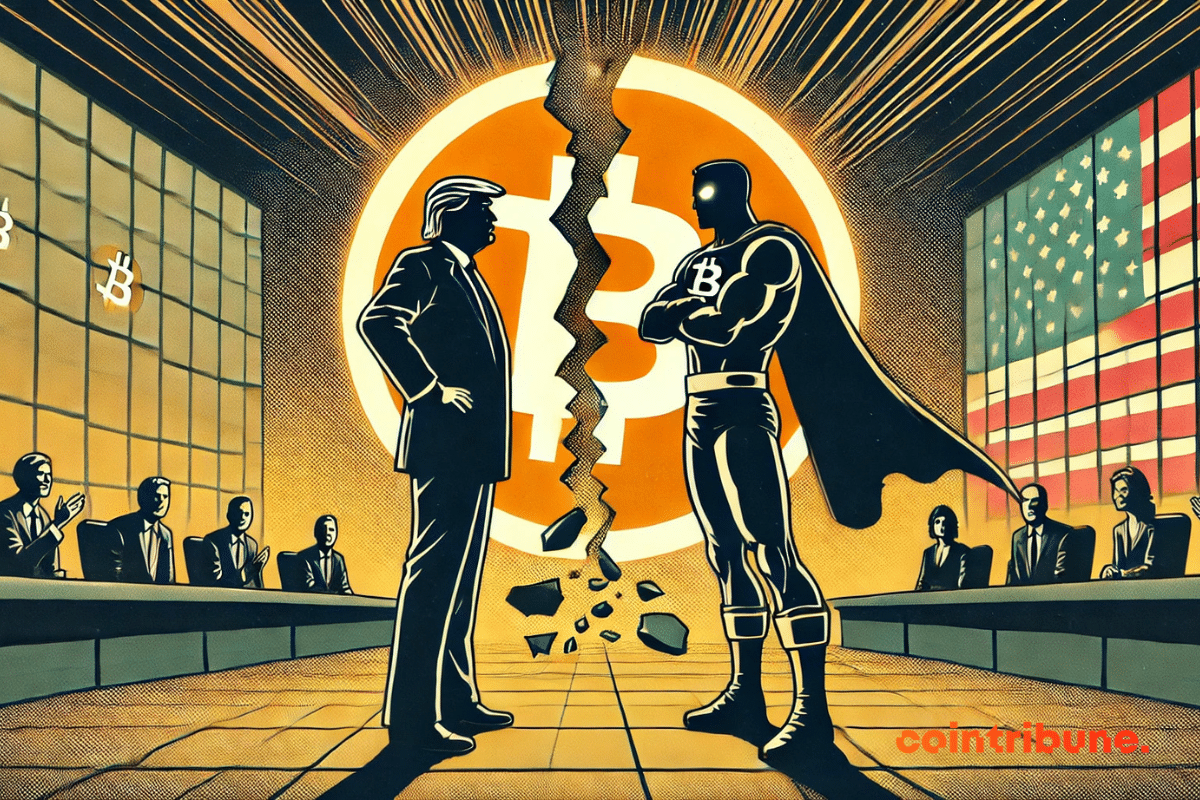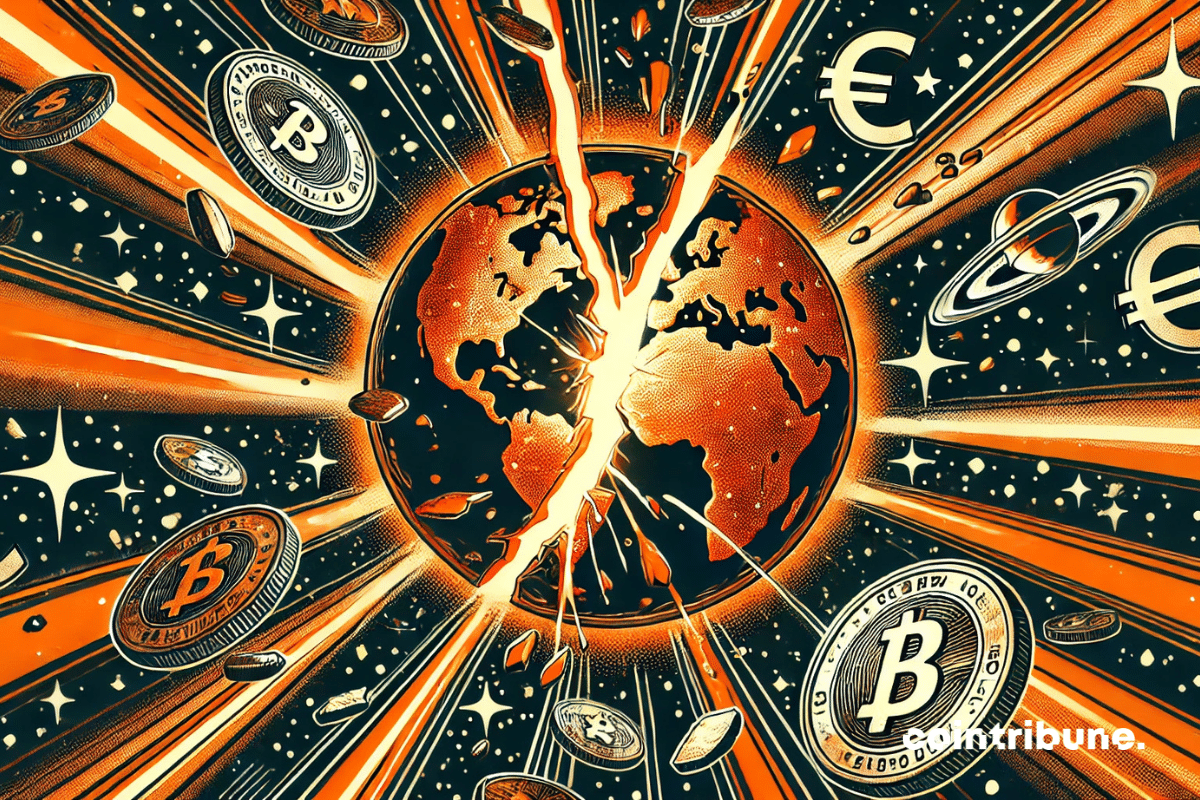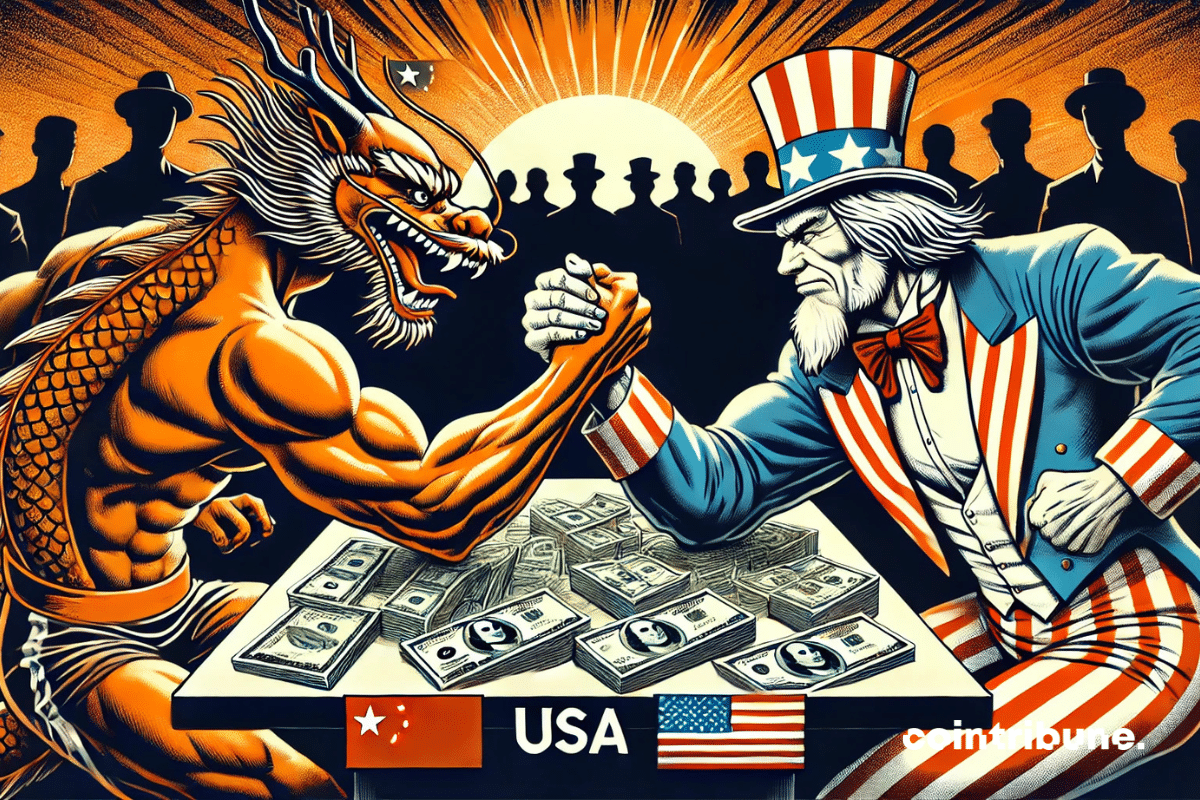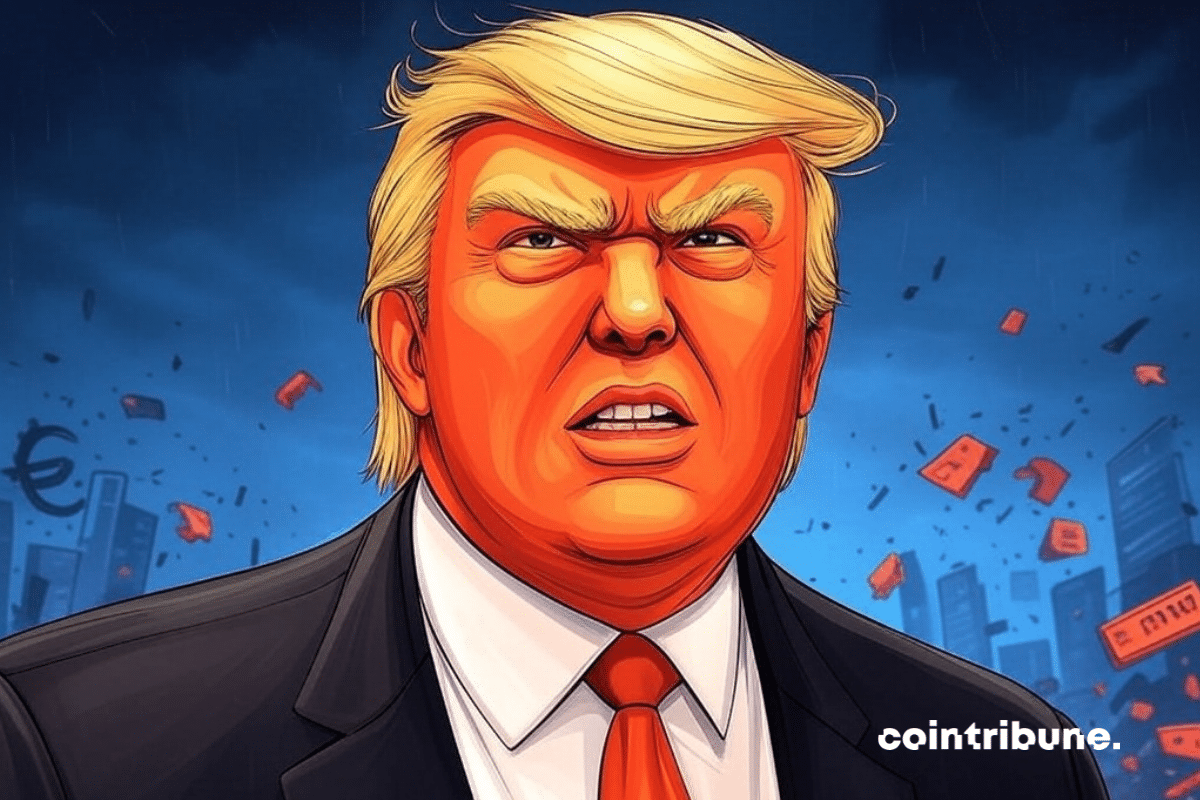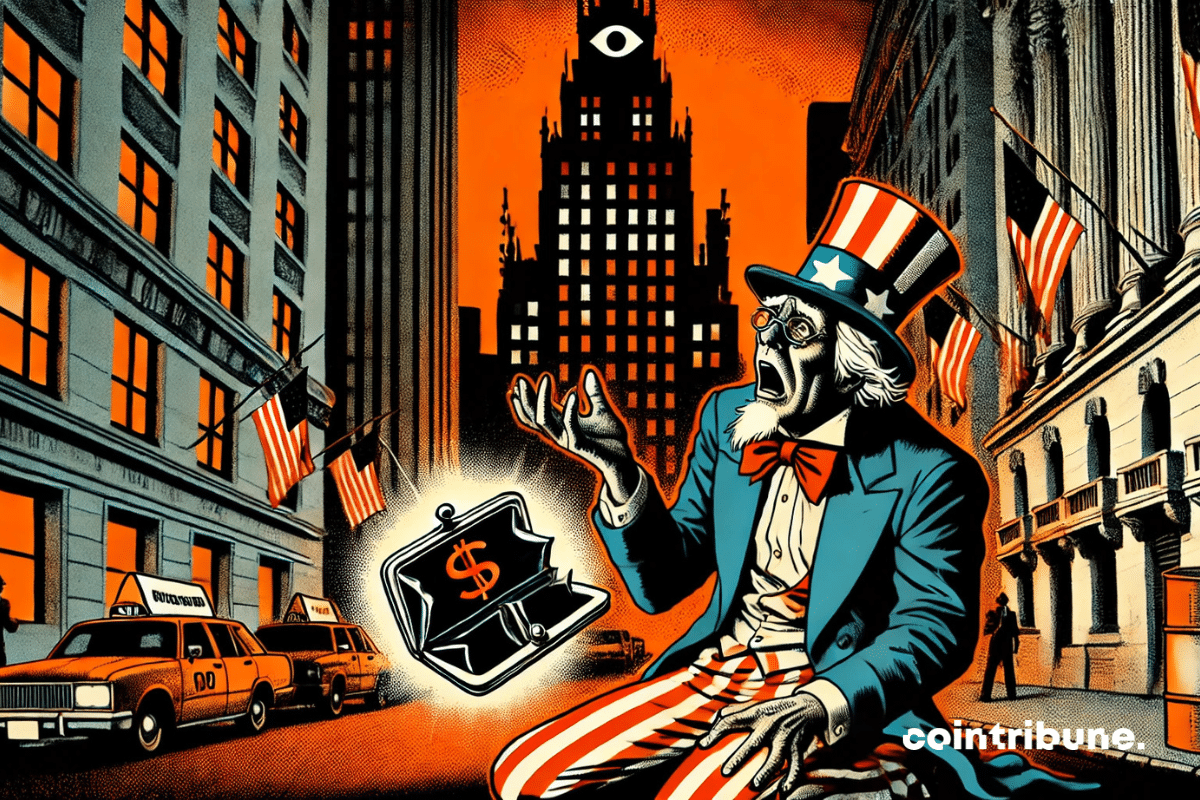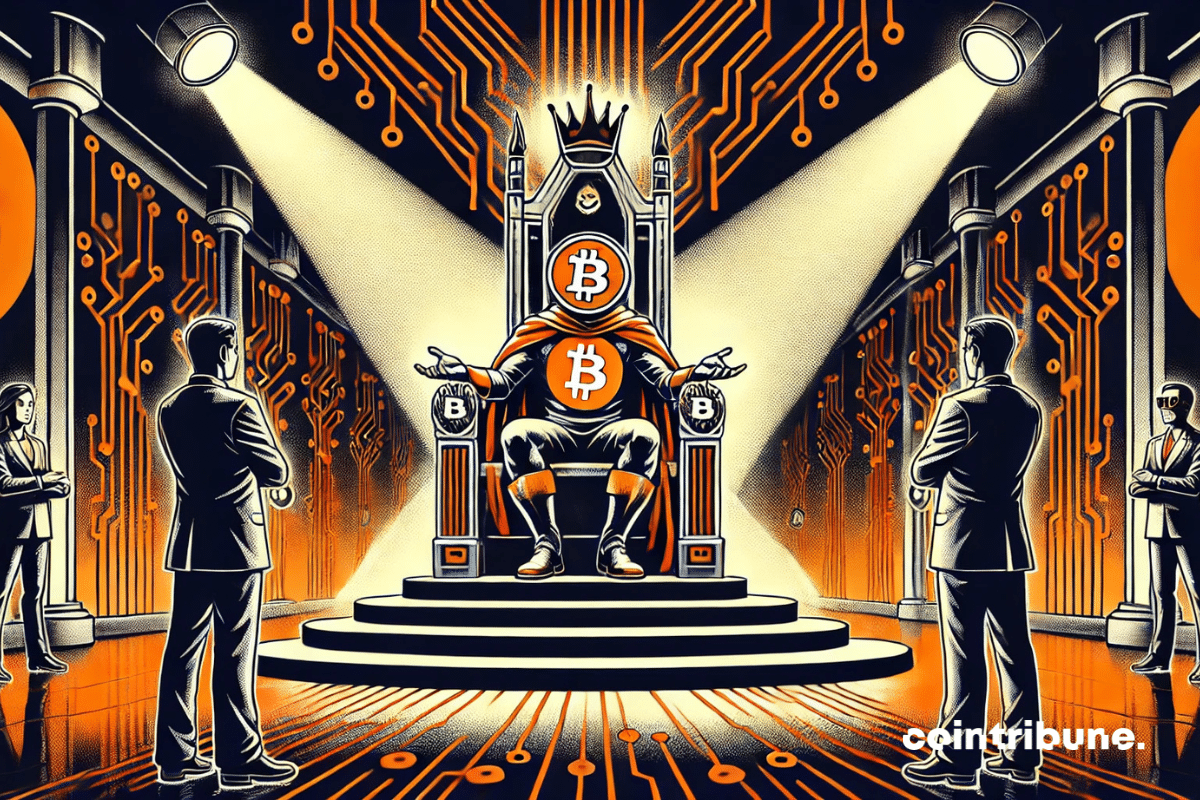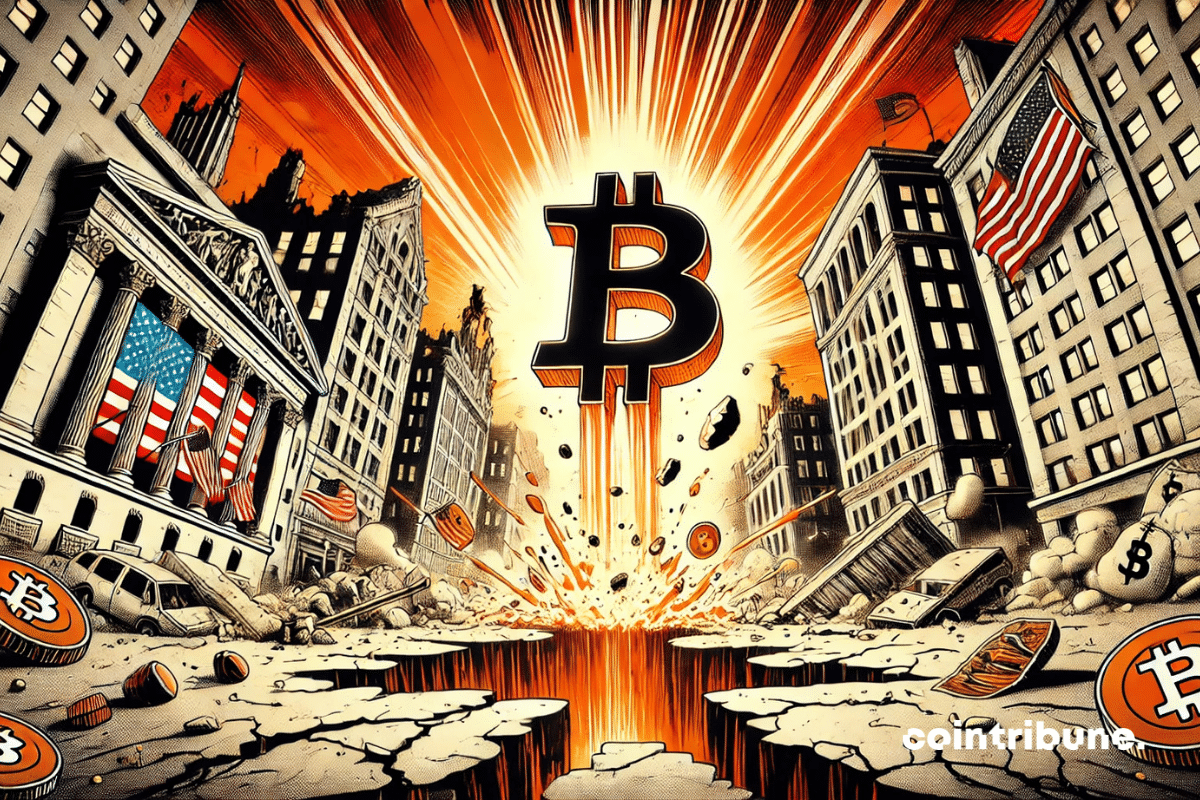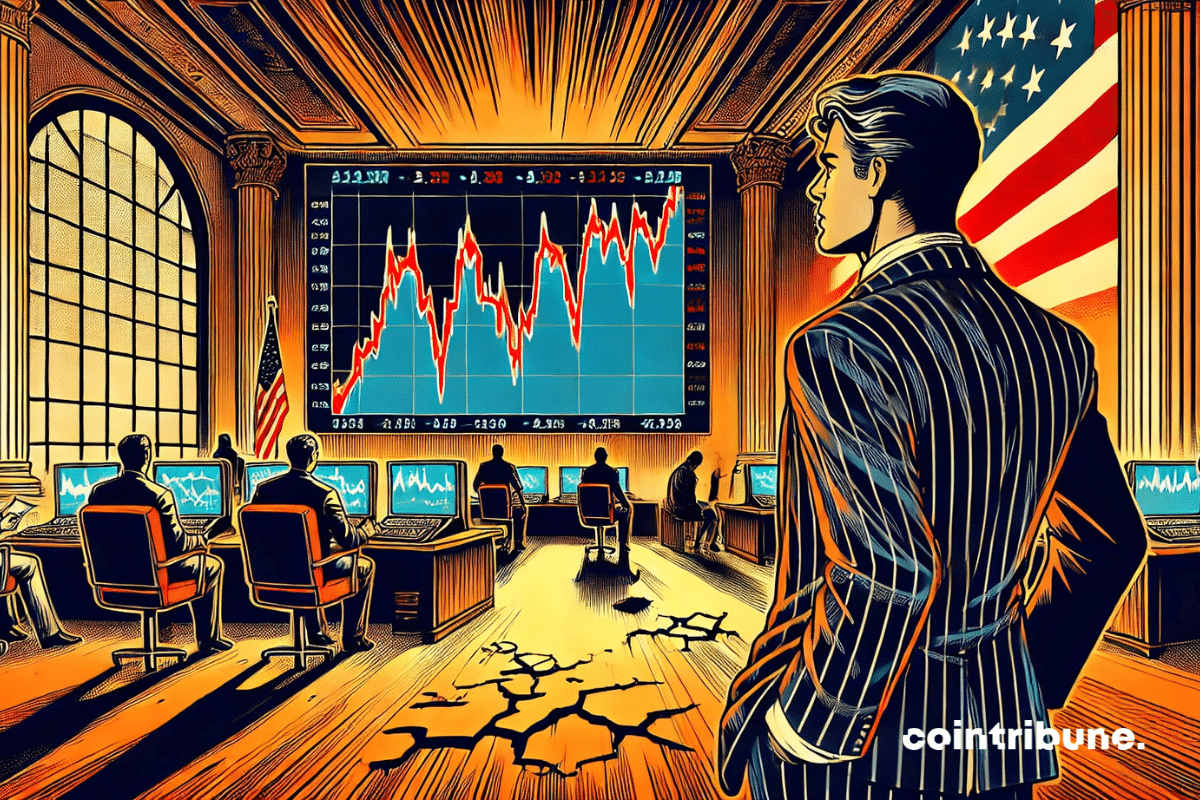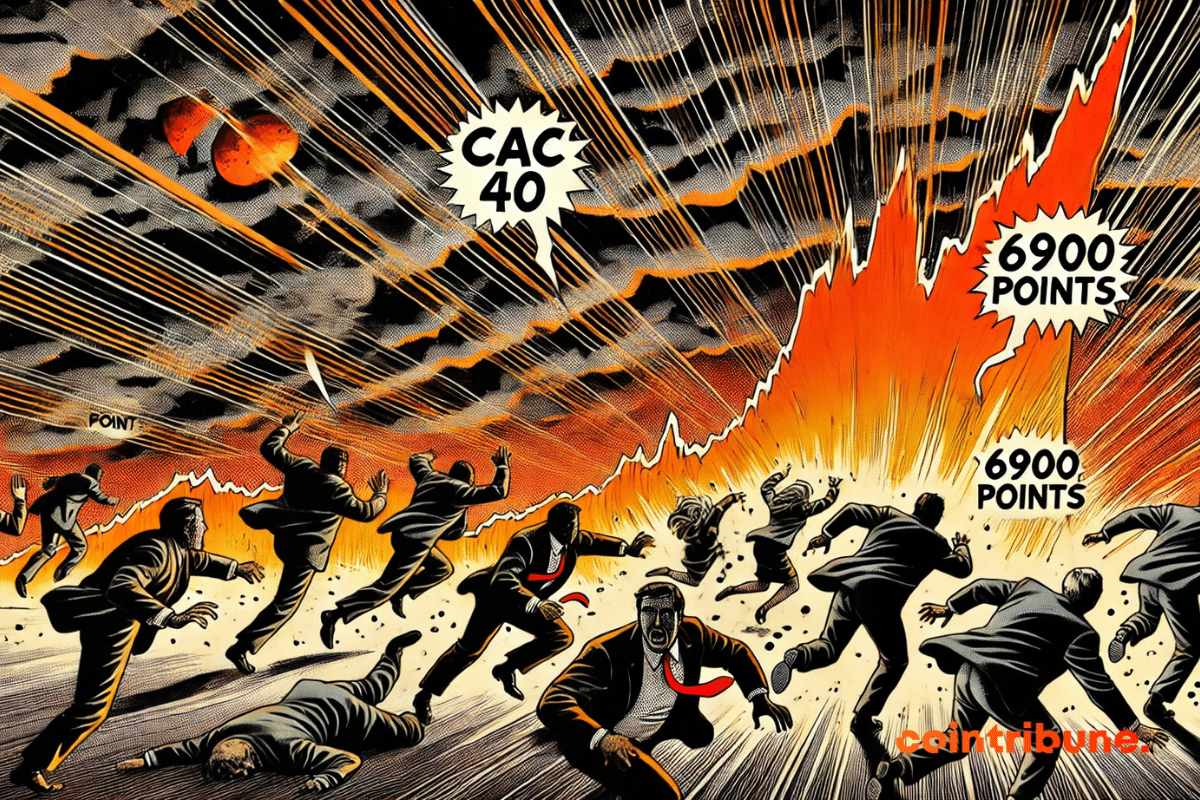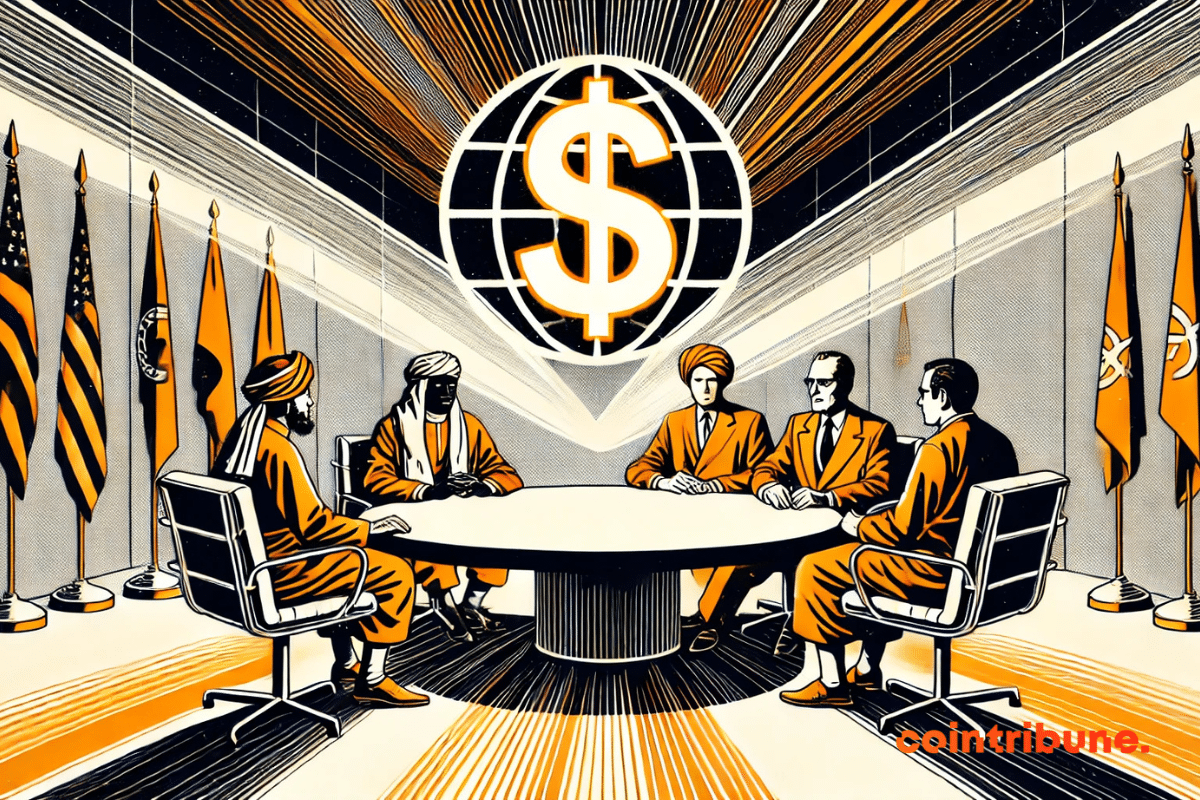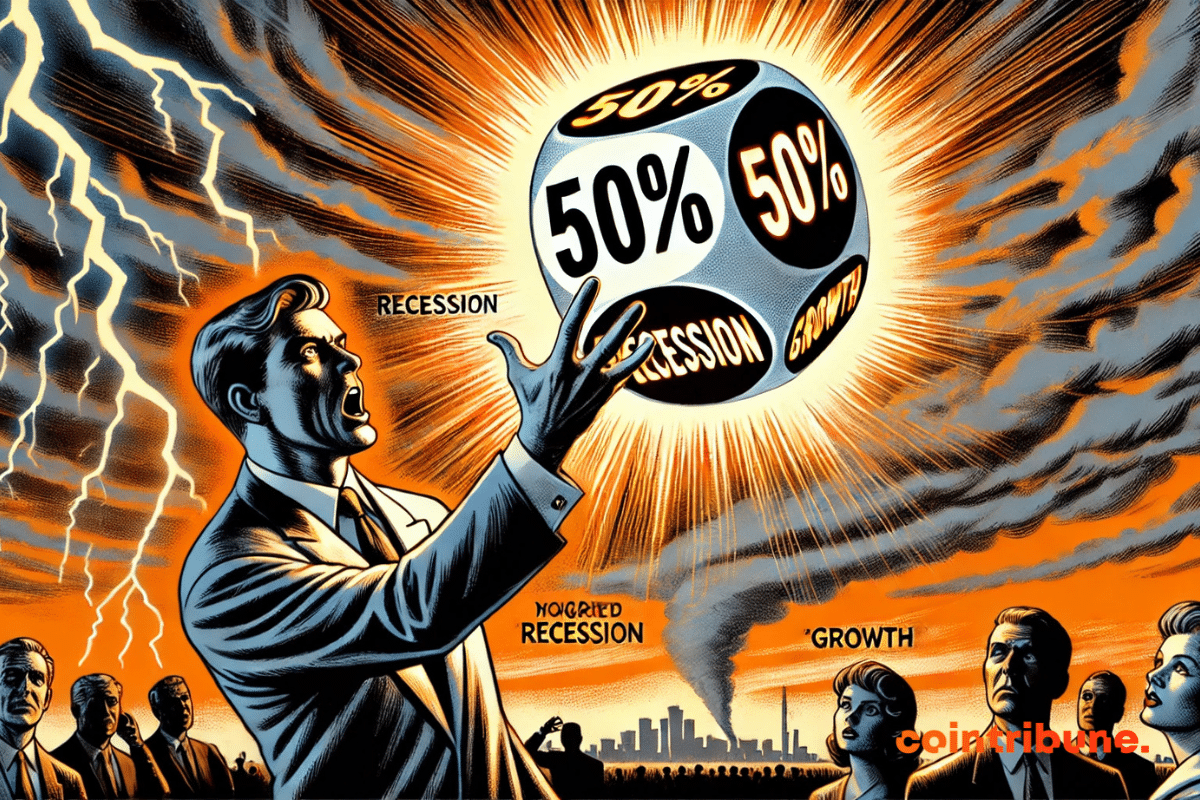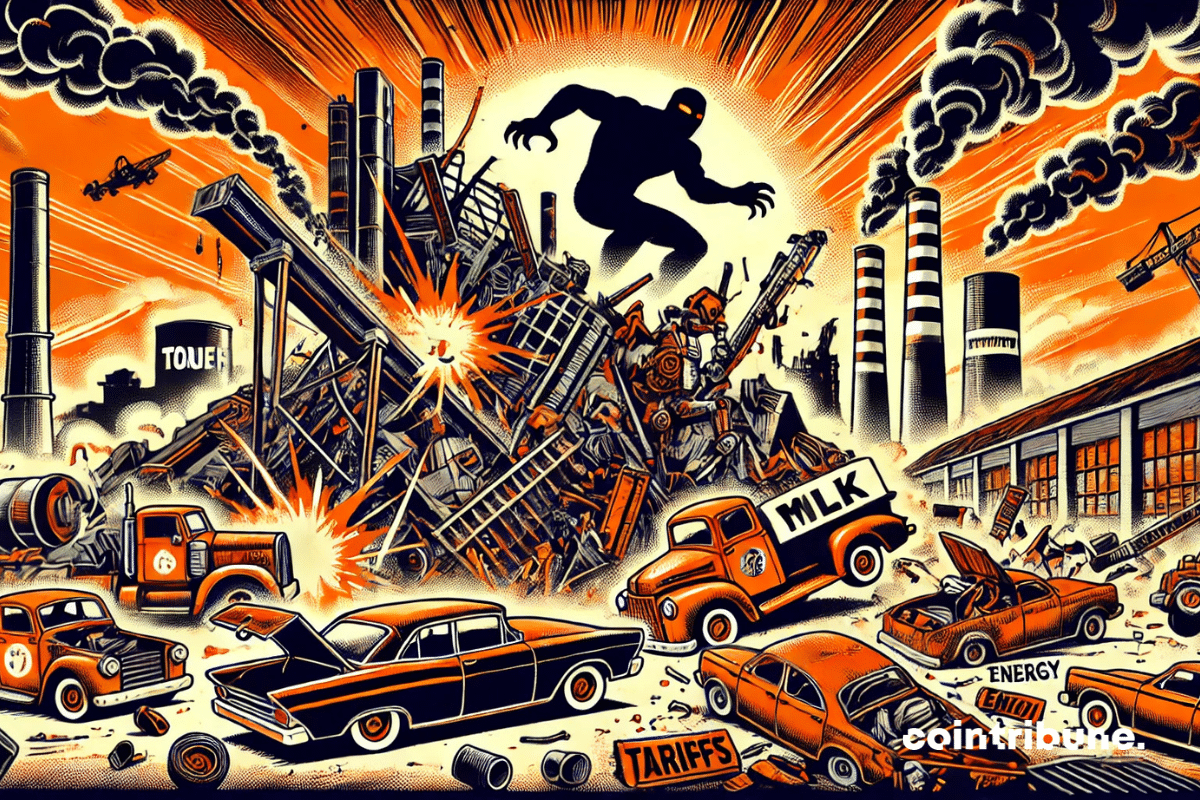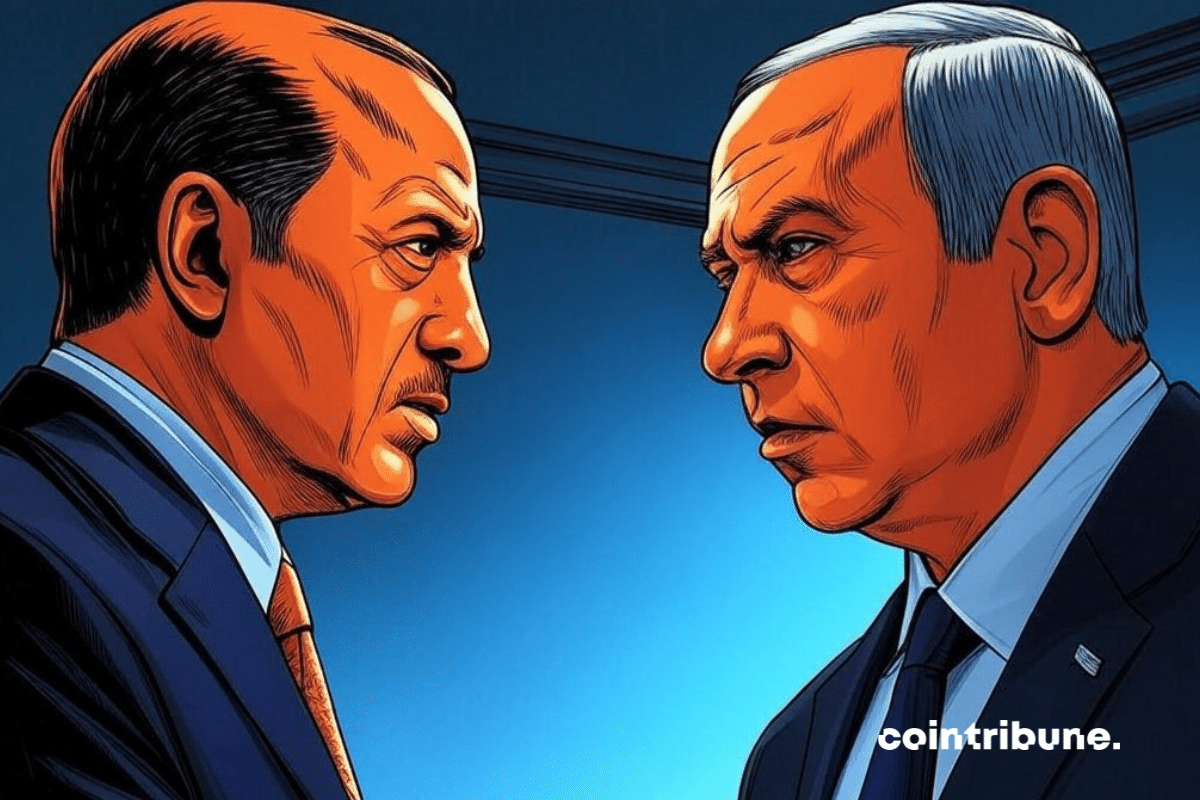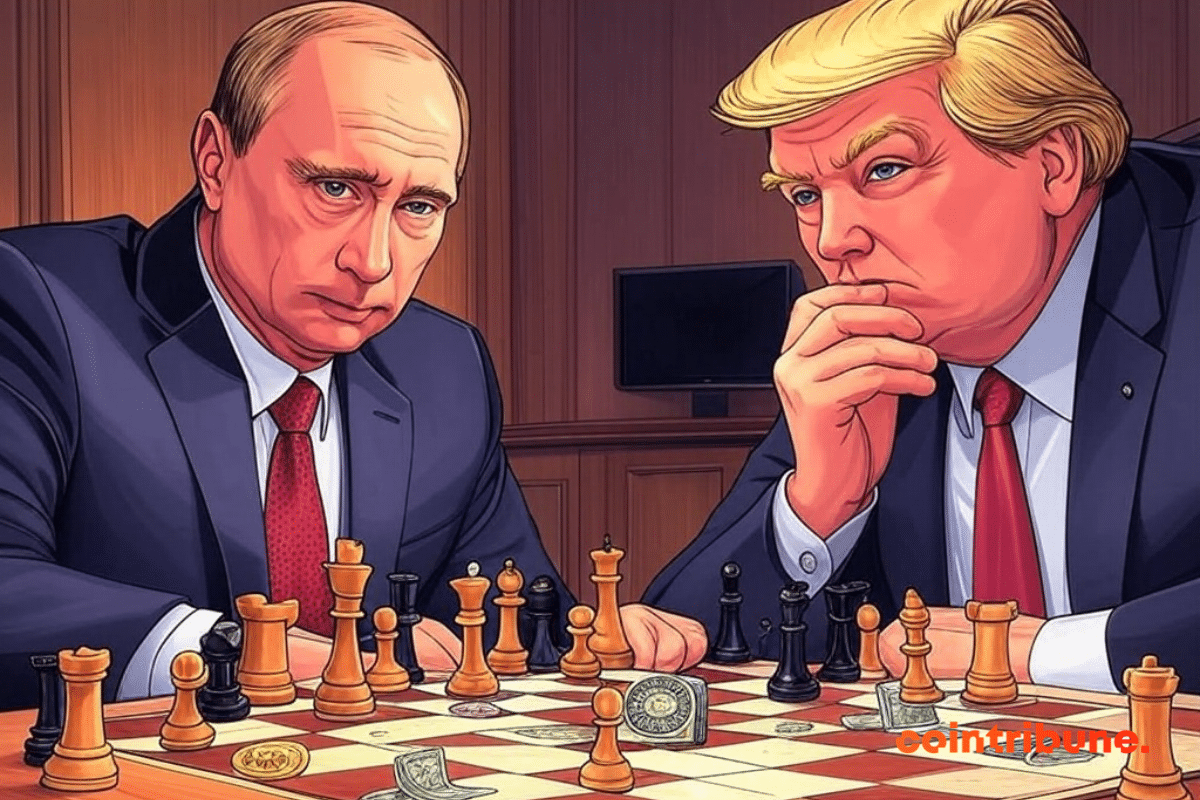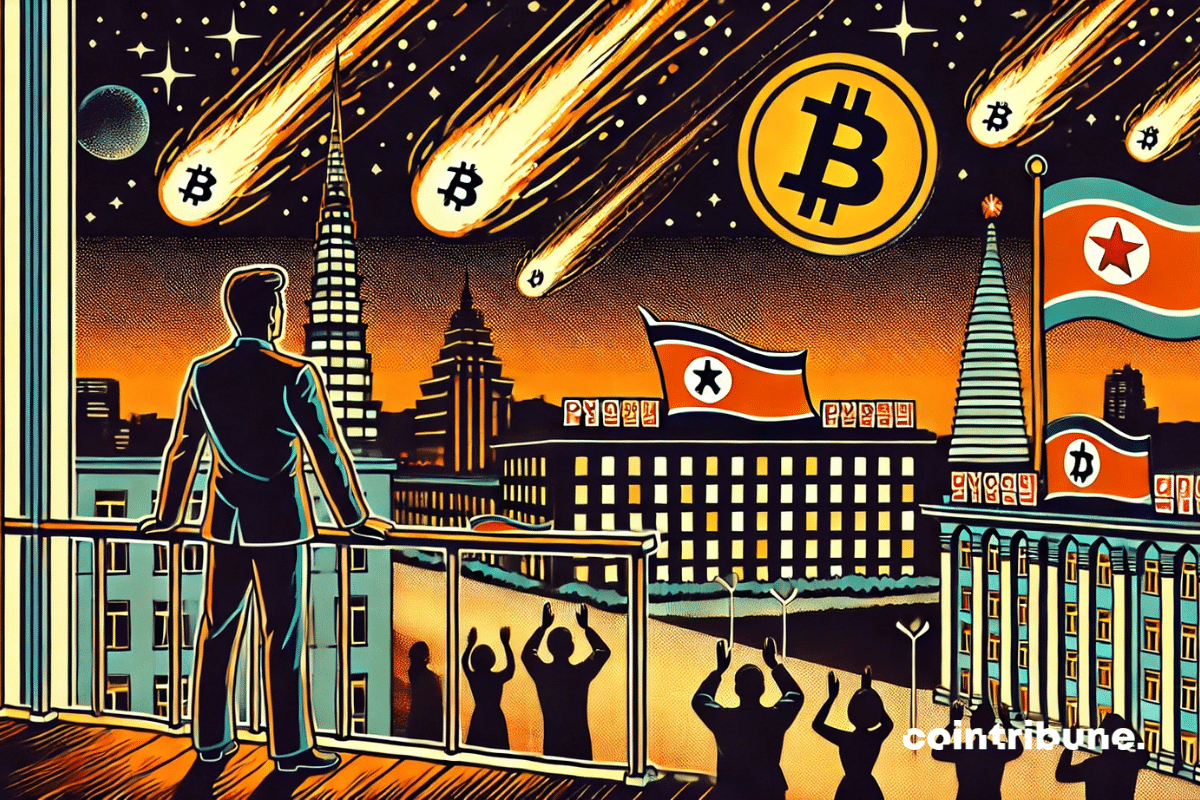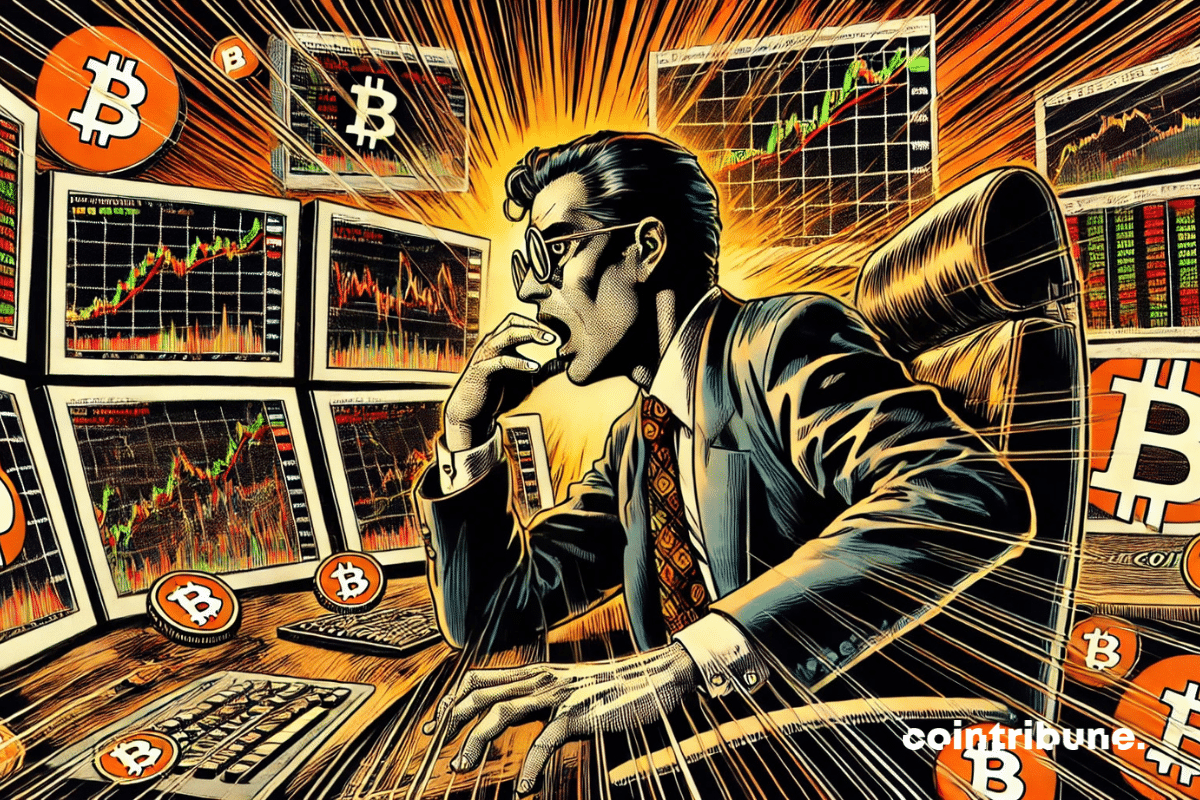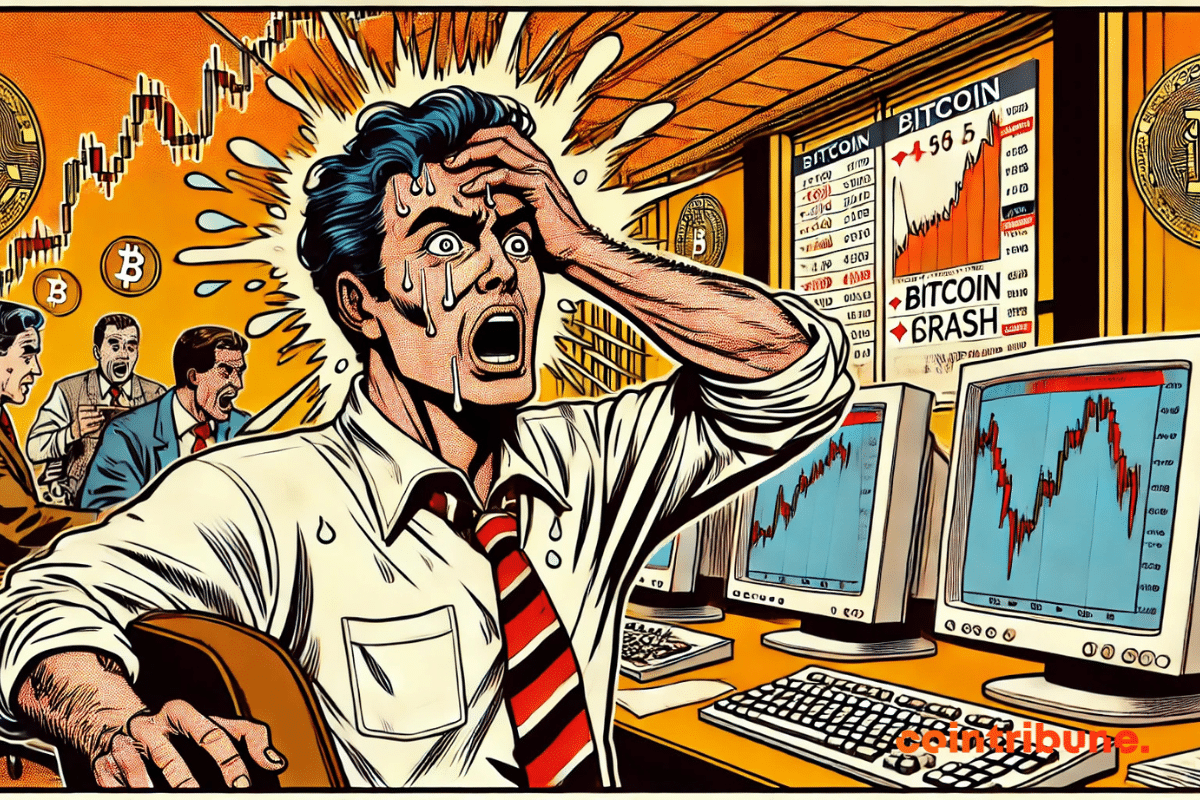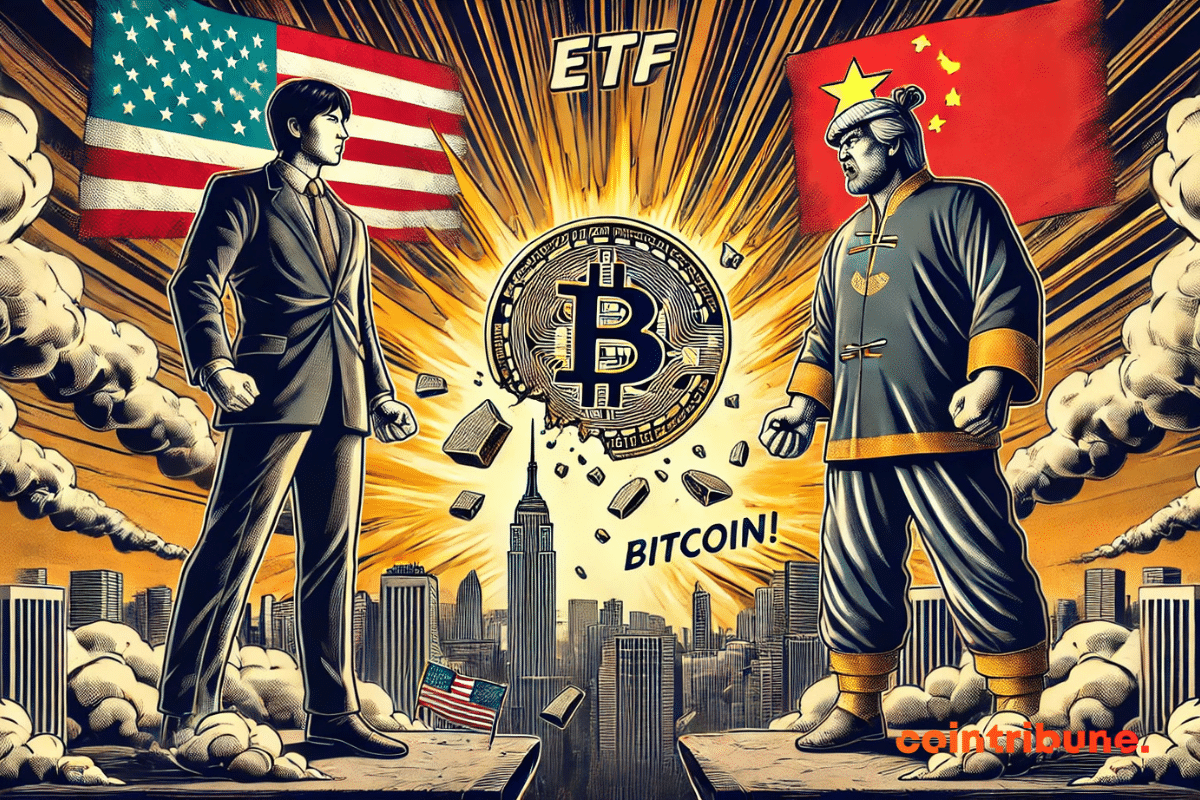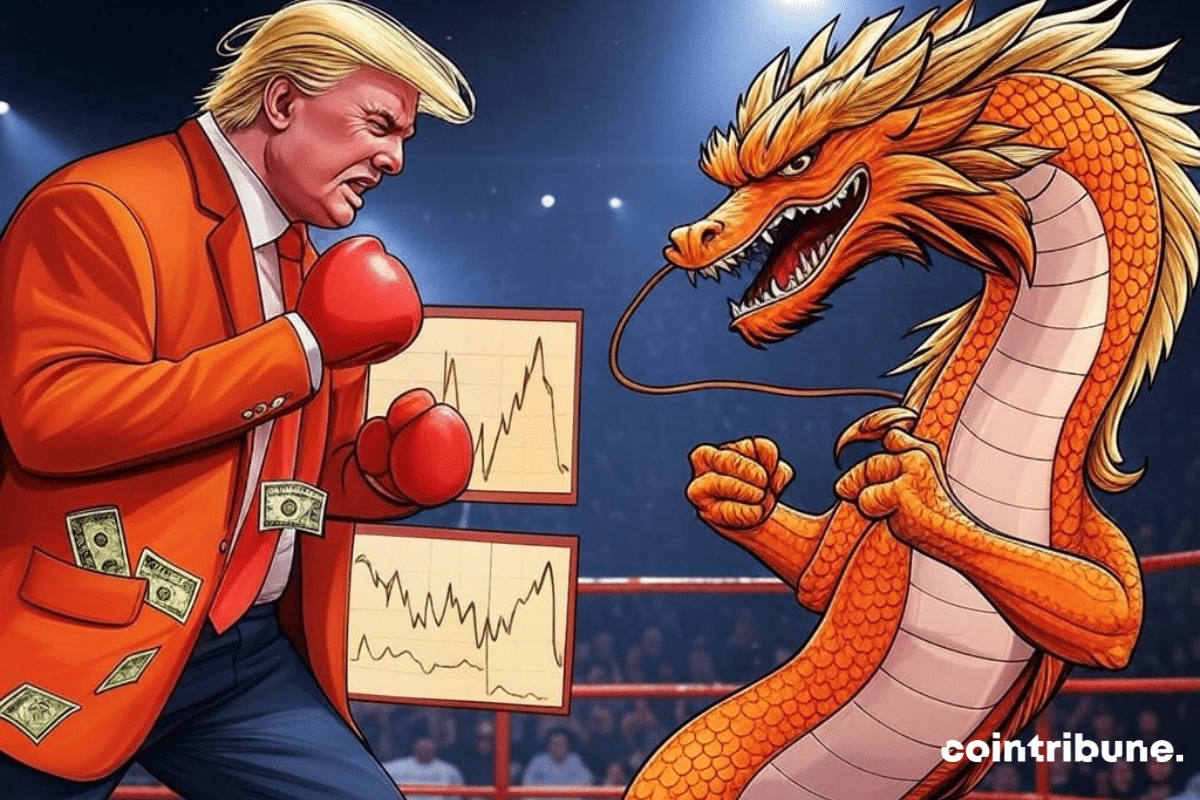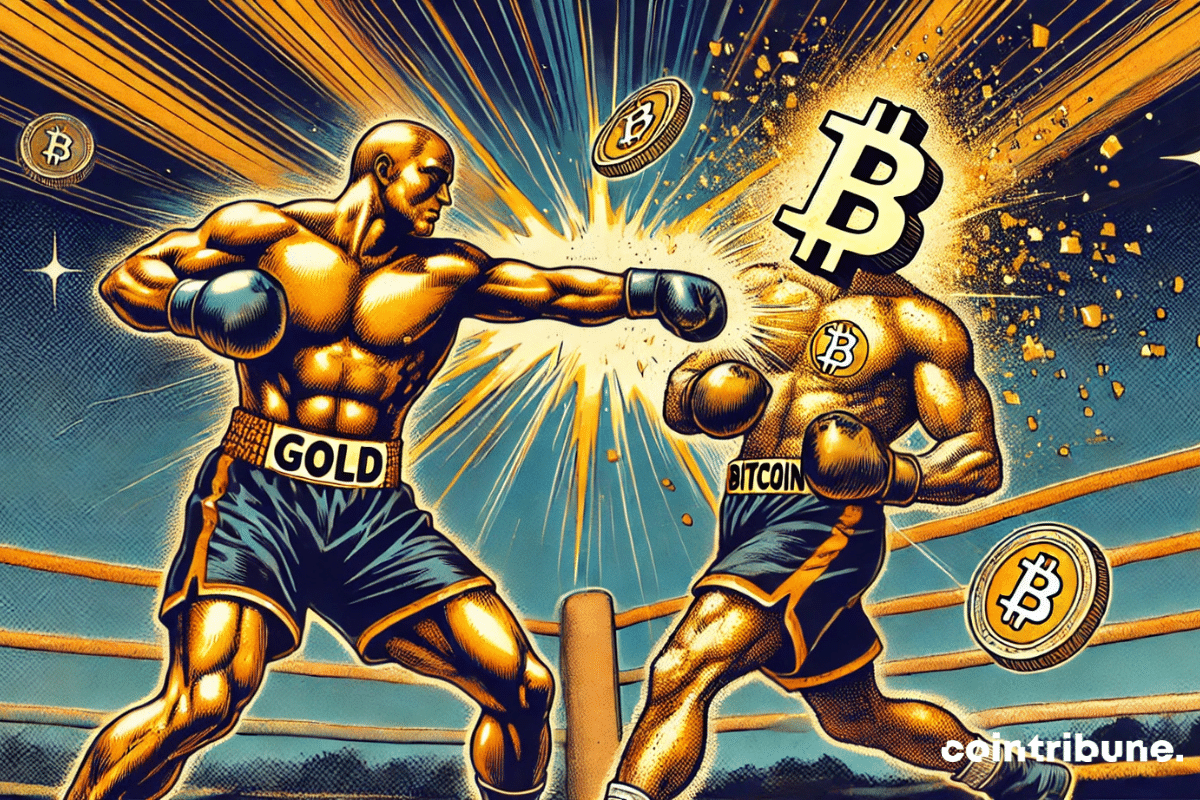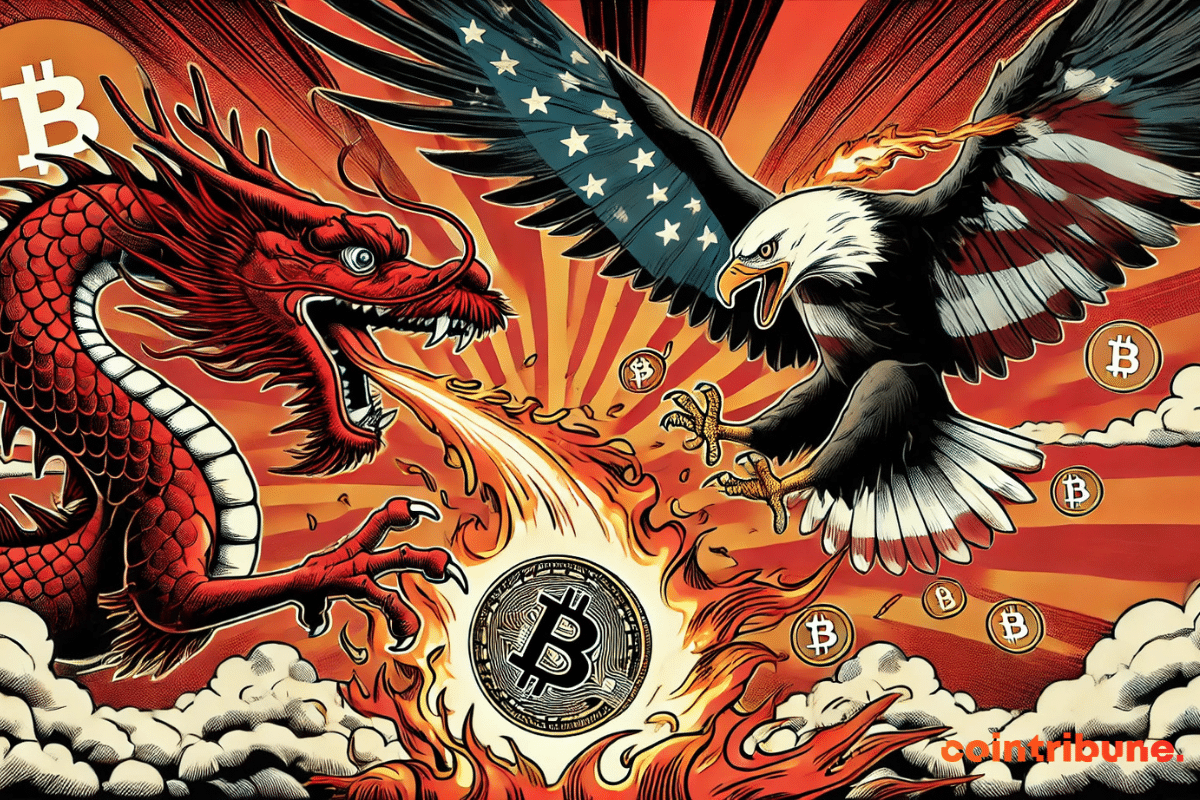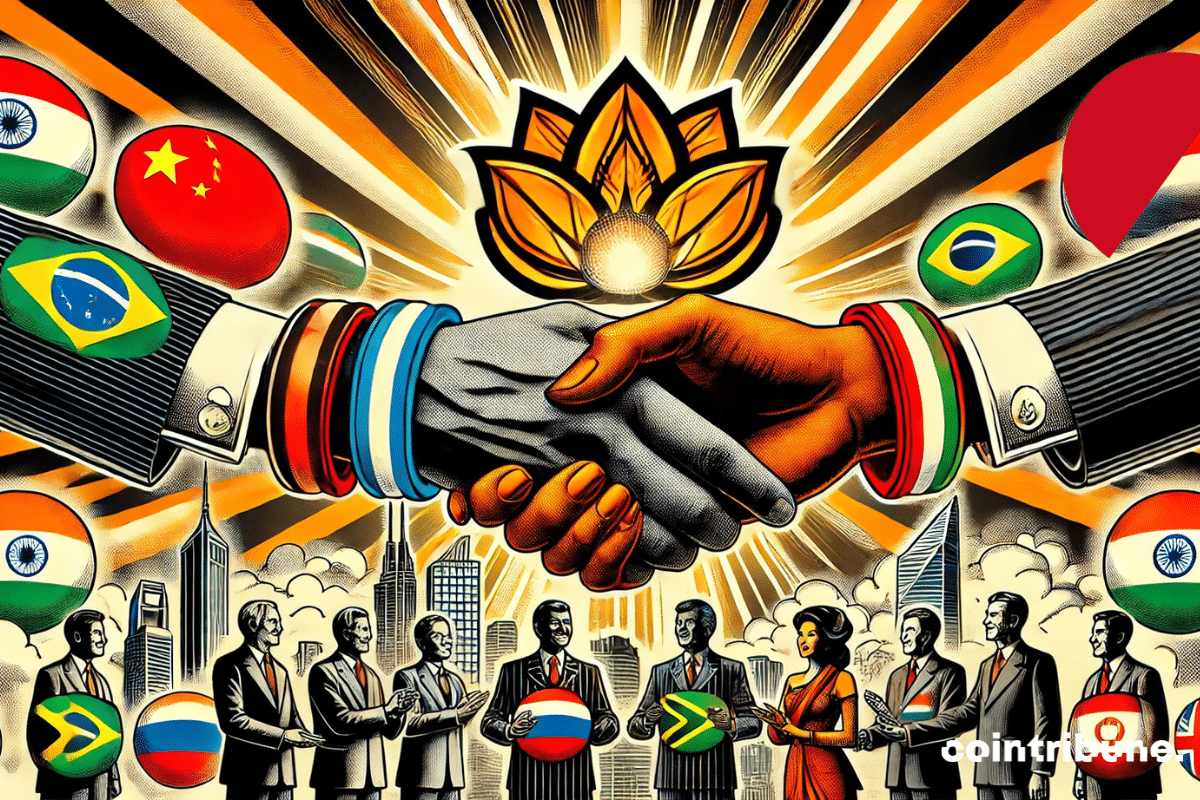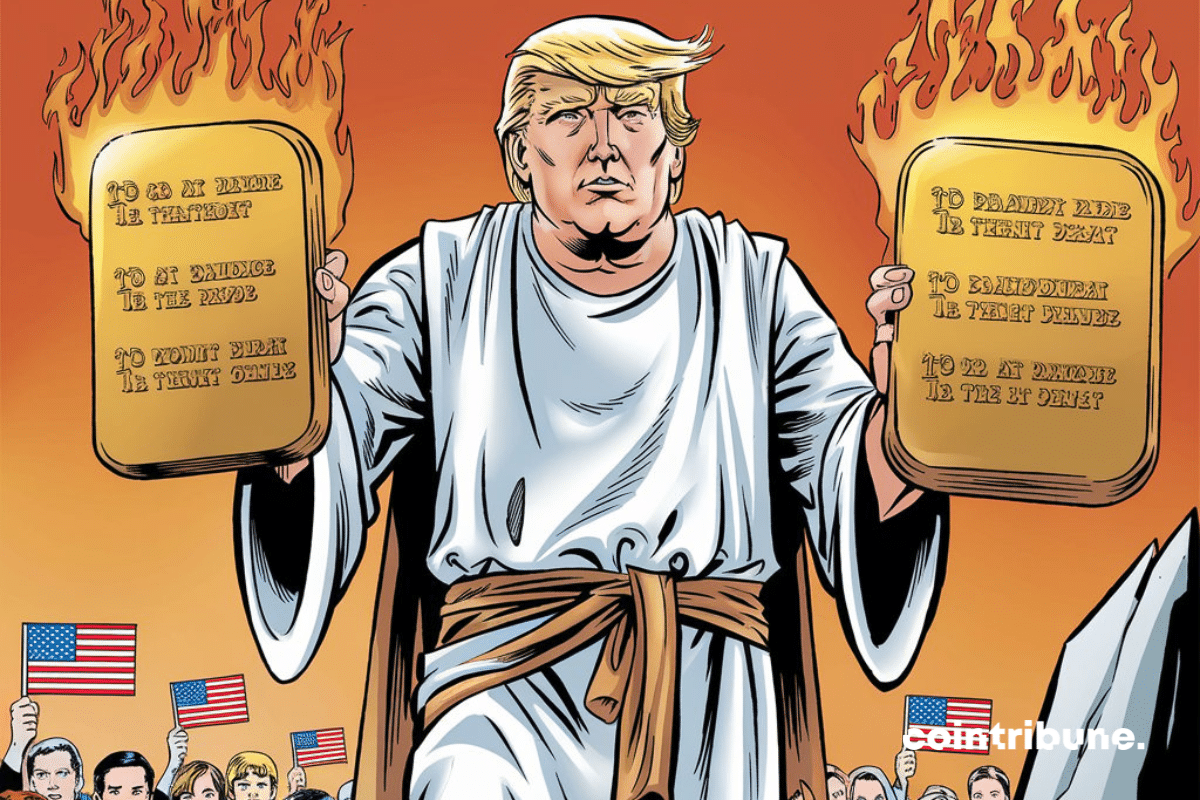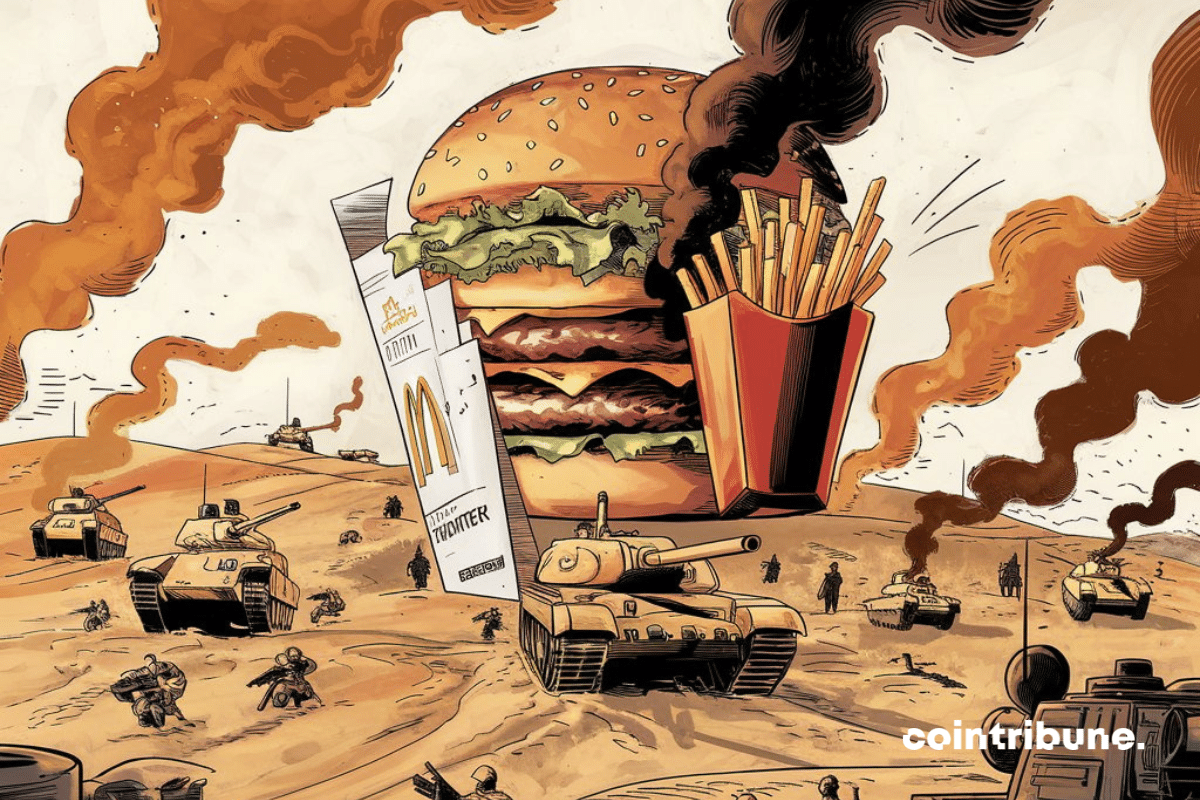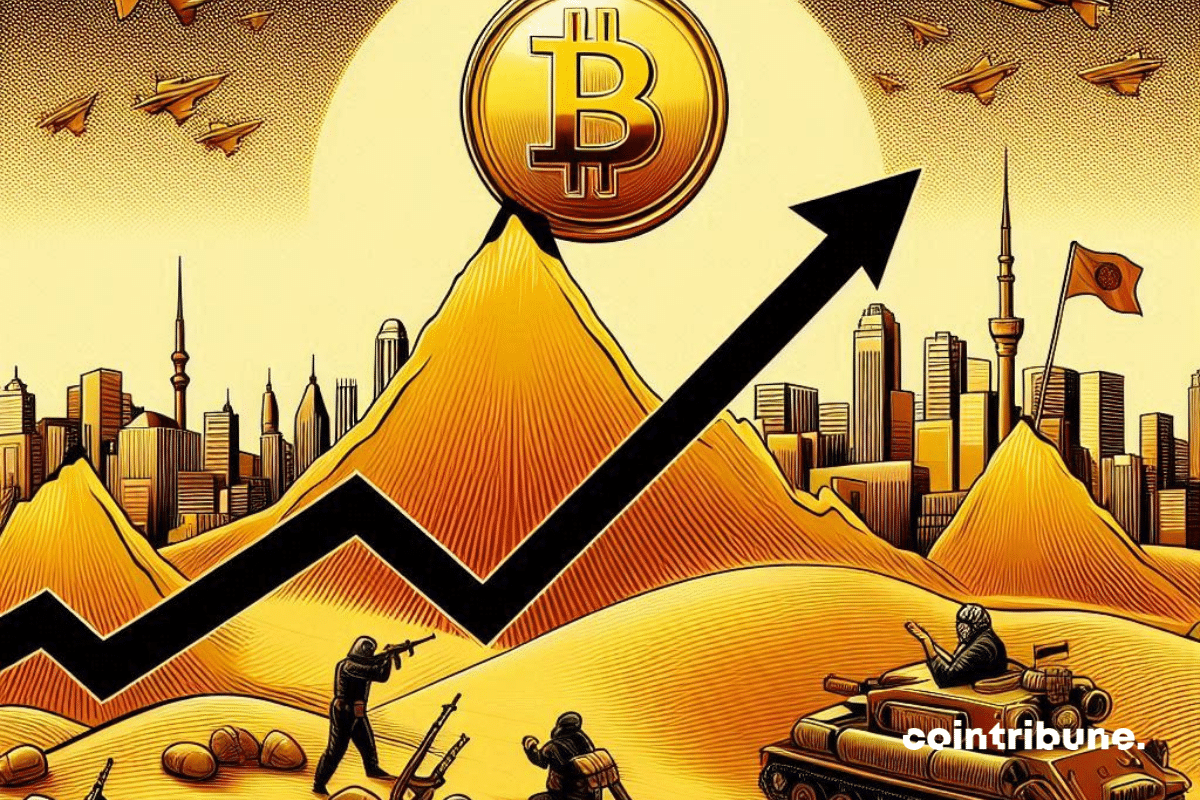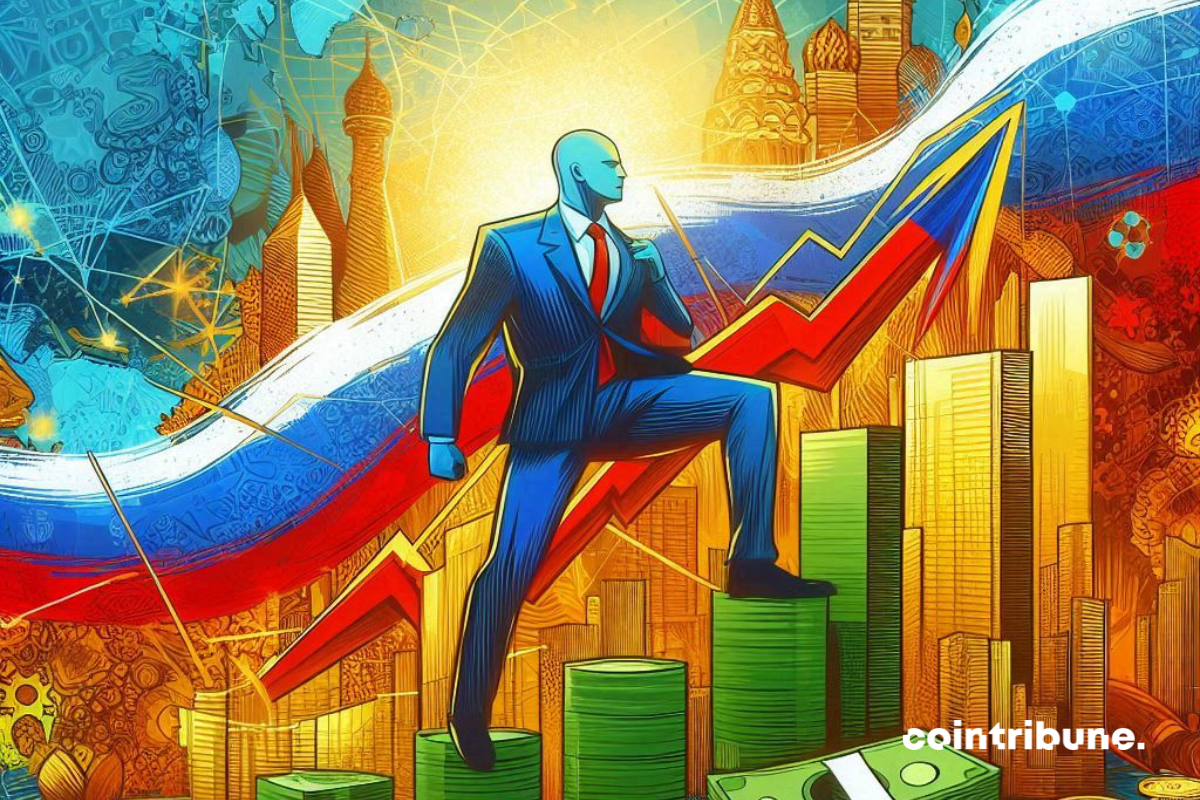While Wall Street is emptying its pockets, Bitcoin is puffing its chest, flirting with the peaks and attracting billions — crypto is becoming the new refuge for capricious capital.
Theme Geopolitics
Gold continues to shine at $3,400 an ounce. A good omen for Bitcoin, which will inherit this fortune sooner or later.
While the United States tightens its tariff arsenal, the rest of the world is organizing itself. Thus, the BRICS bloc attracts economies seeking strategic independence. Breaking away from the established monetary order, this alliance is reshaping trade routes and weakening the dollar's dominance. A silent but structural shift is underway.
How many bitcoins will the United States buy and how? White House advisor Bo Hines advocates using customs tax revenues.
Trump and Bukele, in their meeting at the White House, ditch Bitcoin to talk about prison and commerce. The future of crypto? It will have to wait until serious matters are settled.
Billionaire Ray Dalio warns that the international order is about to change at the expense of U.S. monetary hegemony. Bitcoin is lurking.
China does not intend to yield to the new American protectionist measures. In response to the tariff surge imposed by Donald Trump, Beijing retaliates directly by demanding the immediate removal of tariffs, fearing the effects of a major global economic shock.
The recent imposition of massive tariffs by Donald Trump, followed by an unexpected pause on certain Chinese products, has thrown financial markets into turmoil. While some see this as a deliberate strategy to reorganize the global economic landscape, others interpret this turnaround as a capitulation to market pressures and Chinese intransigence.
Larry Fink, head of the world's largest asset manager, BlackRock, believes that the American economy may have already entered into recession, mainly due to the impact of Donald Trump's tariff policies.
It is now the turn of the rating agency Standard & Poor's to endorse Bitcoin as a store of value.
As the trade war between the United States and China threatens the global balance, bitcoin is gradually emerging as the next international reserve currency.
Global stock markets regained some stability on Tuesday after three days of historic turbulence, despite worsening trade tensions triggered by Donald Trump's new protectionist measures.
After a bleak week, the CAC 40 fell by 8%, shaken by the trade war, market volatility, and grim economic outlooks, with a rebound still uncertain.
In a geopolitical context undergoing a major reshuffle, two significant initiatives are shaking the hegemony of the dollar. Brazil and China are making a strategic shift by favoring their national currencies for bilateral exchanges. For their part, Russia and Iran are announcing the launch of a new common currency to circumvent Western sanctions. These distinct yet converging movements illustrate a shared desire among influential BRICS members: to build a financial system that is less dependent on the greenback and to assert monetary sovereignty in the face of external pressures.
Trump reheats the old dish of protectionism. Result? The markets are nauseous and Polymarket pulls out the thermometer: 50% of recession fever announced.
The new tariffs imposed by Donald Trump triggered a shockwave across global financial markets, prompting an immediate reaction from investors, economists, and U.S. allies.
The Middle East is currently undergoing a profound reconfiguration of its alliances and historical rivalries. The gradual collapse of the Syrian regime and the weakening of Iran are reshuffling the cards in an already unstable region. This new dynamic is bringing Turkey to the forefront as a regional expansionist power, potentially pushing Israel and certain Arab countries towards an unprecedented alliance.
Moscow opens the golden cage: billions of Russian assets finally released, but under conditions. A masterstroke before a call where Trump will play the geopolitical illusionist.
When some dig, others pillage: while Bhutan mines Bitcoin, Lazarus steals it. A robbed Bybit, an inflated treasure, and Pyongyang becomes one of the kings of crypto loot.
Bitcoin, after creating an illusion, falls back into uncertainty. Traders are sweating profusely, caught between vanished hope and growing fear.
Bitcoin, the wavering king, falls below $90,000, wept over by runaway ETFs, drowned in a billion liquidated, against a backdrop of farcical Sino-American disputes.
In the whirlwind of Sino-American tensions, Bitcoin ETFs lost $1.14 billion in two weeks, victim of a geopolitical cataclysm, amid tariff threats and market uncertainty.
Like a cowboy drawing his six-shooter, Trump unleashes reciprocal tariffs, awakening old economic ghosts and sowing panic for Bitcoin in the stock markets.
Gold shines like a sun in the midst of a financial apocalypse, while Bitcoin, that rebellious teen of the market, is still searching for its identity. A nerve-wracking war where the old world takes the lead.
The price of bitcoin has fallen below the $100,000 mark following China's announcement of new tariffs on American imports. This decision, which comes amid increasing trade tensions between the two powers, has caused a shockwave in the markets. Analysts fear a period of heightened volatility if Sino-American negotiations do not progress.
Indonesia, the largest economy in Southeast Asia, officially joined the BRICS bloc in January 2025, marking a major turning point in the reconfiguration of global economic alliances. This membership significantly strengthens the group's weight, which now represents over 51% of the world's population and 40% of global GDP.
New mandate for Trump: an explosive cocktail of a strong economy, with frantic drilling and impactful tariffs. The party begins!
The burger sees red: McDonald's, hit by E. Coli and boycotts, puts on its stock market life jacket.
As the Middle East goes up in flames, Bitcoin stumbles. Gold, on the other hand, sparkles like a Napoleon found under a mattress.
In a tense geopolitical context, the Russian economy demonstrates a persistent dependence on the dollar. Despite currency export bans, 2.3 billion dollars in greenbacks entered Russian territory.
